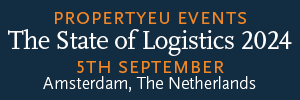Off-market deals dominate transactions in the data centre market, as top European cities struggle with shrinking availability of land and power.
MAGAZINE: Data centre market booms as pandemic drives change
- In Magazine highlights
- 09:08, 17 november 2020
Premium subscriber content – please log in to read more or take a free trial.
Events
Latest news
Best read stories
-

Firethorn Trust launches third-party management services
- 22-jul-2024
Real estate investor, developer and asset manager, Firethorn Trust has appointed Charlie Ingham as director of Firethorn Investment Management, its third-party investment, development and asset management services offering.
-

-

-
- 23-jul-2024
Stoneweg and Bain Capital divest Barcelona hotel

-
































